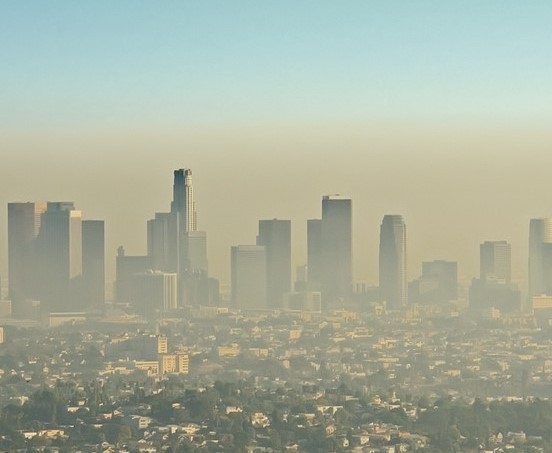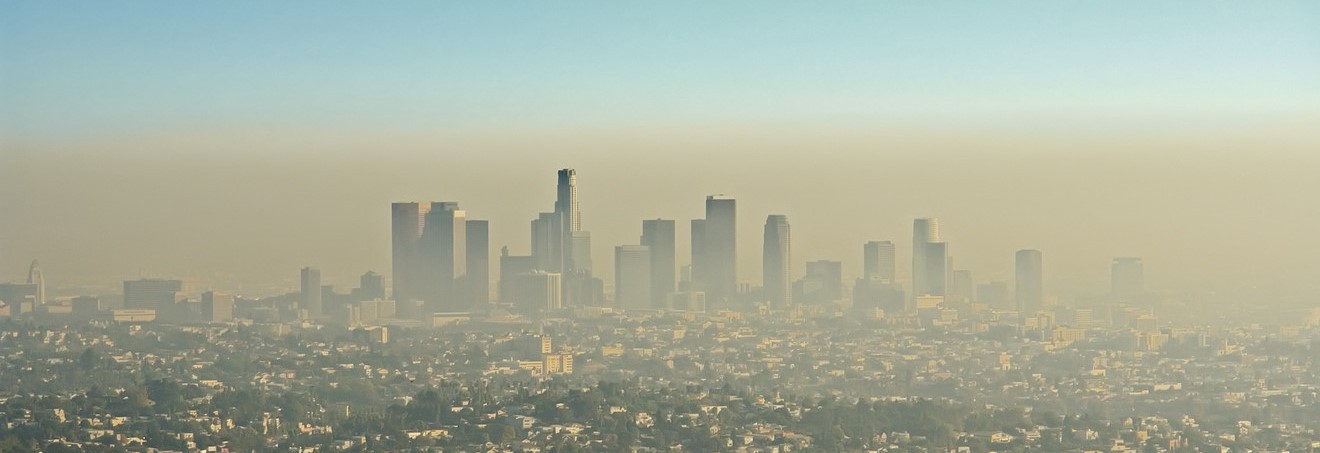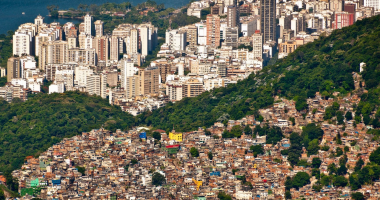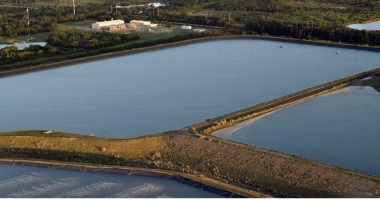Climate, Health and Equity Brief
Dirty Air, Weakened Rules and COVID-19
April 3, 2020

Hot Topic: Pollution. If you think nothing is happening in the world beyond humanity’s epic struggle to cope with coronavirus and its impacts, think again. While people around the world focus on staying safe, social distancing, coping indoors and enduring record-breaking job losses, the Trump Administration has been busy dismantling the regulations that keep our air clean and help mitigate our climate impact. |
Last week, the Bureau of Land Management sold off the right to drill for oil on 87,000 acres in Colorado, Montana, North Dakota and Wyoming, granting oil and gas companies access to U.S. land for pennies on the dollar. On Tuesday, the EPA weakened mileage standards for automobiles, a change that will allow the emission of one billion more tons of carbon dioxide from U.S. vehicles annually starting in 2021. And just yesterday, the EPA announced a new directive—which will remain in place indefinitely—that limits environmental penalties in the wake of COVID-19 and gives factories, power plants and other polluters a wide berth on their management of pollution and hazardous waste.
While the EU made positive moves this week, unanimously agreeing to make COVID-19 recovery plans consistent with a “green transition” to reduce emissions, the Trump Administration has sought to do exactly the opposite in the midst of a global crisis—bolster the fossil fuel industry and give a green light to polluters to act recklessly at a time when air quality is more important for public health than ever.
—Matt & Traci, GMMB
Politics & Economy
The Trump administration has eased restrictions on air pollution even as health experts warn that exposure to vehicle emissions and poor air quality is linked to a greater risk of respiratory infections, including COVID-19. (The Washington Post, The Guardian)
The EPA announced that it will freeze monitoring and penalties indefinitely for companies emitting air and water pollution, adding to a number of environmental regulation rollbacks for major polluters during the COVID-19 crisis. (Vox)
November’s UN climate summit has been postponed to spring 2021, delaying the scheduled release of updated action plans while a number of nations are already falling short of their 2015 commitments. (Axios)
Health
A new study found that exposure to air pollution increases the risk of developing dementia in people with heart conditions. (CNN)
Warming Gulf waters along the southern U.S. have increased the risk for above-average tornado and hurricane seasons, threatening states currently fighting COVID-19 with other potential crises. (The Washington Post, Our Daily Planet)
Equity
The controversial Keystone pipeline, whose construction is set to begin in April, faces criticism for putting workers and surrounding indigenous communities at greater risk of COVID-19 and threatening major midwestern waterways. (The New York Times)
A U.S. District Court has ruled against the state of California and a coalition of environmental groups challenging Trump administration rollbacks to fracking regulations on public and tribal lands. (Bloomberg)
Action
European Union leaders have agreed to consider emissions reduction commitments in their upcoming COVID-19 economic recovery plan. (Reuters)
Kicker
Getting cabin fever? Check out these ideas to turn your time at home into climate action.
“Like pandemics, climate change can be planned for in advance, if politicians pay attention to the warnings of scientists who are sounding the alarm.”
– Peter Gleick, climate scientist and founder of the Pacific Institute

)





